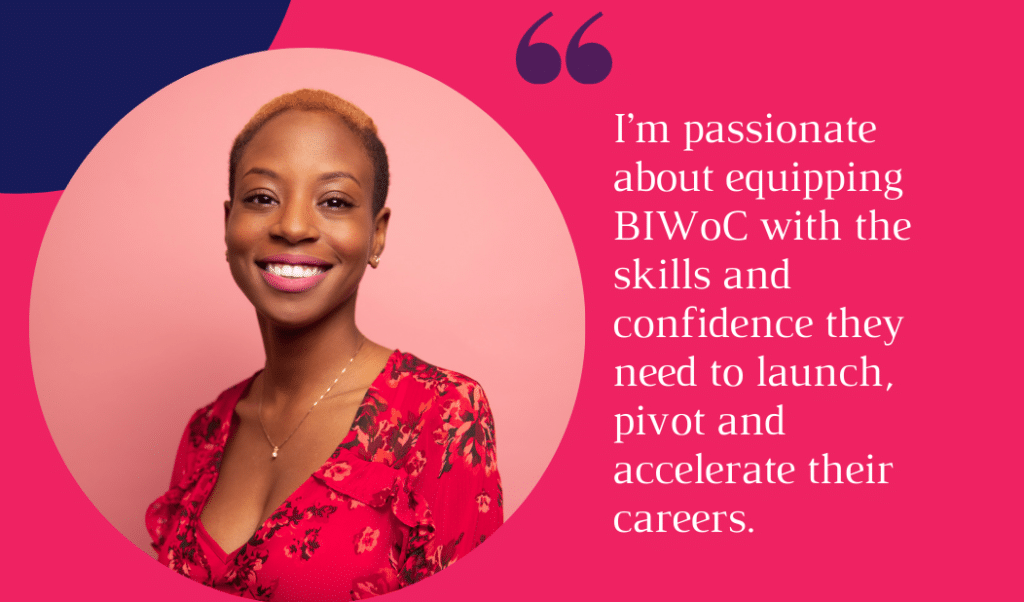Tell us about your first job and early-career experiences.
How much space do I have?! LOL. My early-career experience was a roller coaster, to say the least. I recognize now though that a lot of it was due to the fantasized ideas of work that I had in my head. Like many of us do, I grew up thinking that as long as I went to school and got good grades, I would end up in my dream job and live happily ever after. It didn’t exactly happen that way for me. But, let me backup a little bit 🙂
I attended McMaster University and after learning about the world of Public Relations and Communications in my first year, I was confident it was the career path for me. My original plan was to become a lawyer but I completely changed my plans and focused on becoming a publicist. I did six internships while in school, including a PR for Joe Fresh, Sales and Merchandising at Michael Kors (I know, it wasn’t PR but I was convinced this would be my foot in the door…it didn’t happen) and then PR at a major agency in downtown Toronto. Once I graduated from McMaster, I decided to also get my certificate in PR at Humber just to be sure I could really land a job.
Long story short, I ended up starting my career in various roles and industries and I really got my first taste of real work life, especially as a woman of colour. I’m definitely not saying my experience was all bad but I encountered microaggressions, difficult managers, a lack of professional development and several times I faced the
experience that’s often encountered by Black women. In other words, as soon as I started to really showcase my abilities and perform better than others, I was perceived as a threat and had colleagues and managers try to “cut me down.” It was a huge blow to my confidence and it was not at all what I imagined work life to be.
This is why I do the work that I do now. I ended up facing a major
expectation hangover in my early career based on the fairy tale I imagined work would be. I wished I had a program like AHF to engage in real talk and solutions. Yes, it’s fun to shape your career and uncover your potential but as women of colour, the journey is full of so many ups and downs. That said, my early-career experience brought me to where I am now so I’m grateful!
Why did you start Do Well Dress Well?
I started Do Well Dress Well because I wanted a creative outlet outside of work. I knew that I really loved personal branding and style and I felt like it would be awesome to create a little space on the internet for me to share my advice, learnings and insights. I essentially wanted to create the platform I wish I had when I was in school. Sure, there were other career advice websites but none of them were created by women that look like me. I couldn’t always relate to their stories. I got the idea in 2014 but unfortunately, imposter syndrome held me back for a long time. I eventually launched the site in 2016 and it’s amazing to think that almost five years later, it has evolved into something bigger than my wildest dreams.
Through Do Well Dress Well I essentially wanted to create the platform I wish I had when I was in school. Sure, there were other career advice websites but none of them were created by women that look like me.
You are a certified Career Strategist. What does this mean and what do you do?
Yes! So, this means that I’m qualified to work with people to develop strategies that help them successfully launch, pivot and accelerate their career. For everything from resume development and mastering interviews to building a personal brand, I’m able to evaluate people’s unique situation and create a plan to help them get from where they are to where they want to be.
What inspired you to support Accelerate Her Future?
I was inspired to join AHF’s Advisory Group because career advice isn’t a one size fits all and I believe in AHF’s goal of creating tailored career programs for BIWoC. I truly believe that AHF is filling a crucial gap and that’s why I signed on from the very beginning and continue to support in any way that I can. The work that I do with Do Well Dress Well and the various boards that I sit on very much aligns with AHF’s mission. I’m all about creating content and learning experiences that help people launch, pivot and accelerate their career.
I’m really excited to take on the Career Strategist in Residence role to help ensure that AHF provides the most impactful learning experiences to participants. Of course, my main goal is to provide tailored career advice that considers the barriers and experiences that BIWoC face in the workplace.
You have been actively advising and advocating for youth employment. Tell us about this work.
One of the many reasons why I decided to launch Do Well Dress Well is because I felt like when I was a student, I didn’t have the resources I needed to navigate my career. I had to learn a lot of things myself (often the hard way) and it was very discouraging. Now, as we look at the unprecedented impact of the pandemic on youth, especially BIPoC, I feel an even bigger fire inside me to advocate for youth employment. Of course, I have the work I’m doing with Accelerate Her Future, and I also was recently selected to join the inaugural Youth Council of the Canadian Council for Youth Prosperity. Essentially, our mandate is to develop a strategy for youth workforce development and I’m excited because it will be created by youth leaders. Often, you see strategies created that don’t even consult young people to find out what their experiences are and their ideas for change. We’re at a critical juncture in the pandemic where now is the time for us to start developing practical solutions to move forward. If not, youth will get left behind and it will have a long-term negative impact on our economy.
You were recently selected as one of 120 youth leaders to participate in FastForward 2020. Tell us about this conference and what you learned.
Yes, this was a great experience because it was very solution-oriented. We spent a week (virtually, of course) brainstorming potential programs, policies and initiatives that could tackle the issues surrounding the future of work. At the end of the week, we were split into groups and actually created a short pitch that we presented to various stakeholders within the youth employment ecosystem.
One thing that has been really interesting about the pandemic is that it has served as “The Great Clarifier” as many people have called it. In other words, it has really made clear what issues we have in our society and in the context of work: work is broken. In fact, I learned that in Canada we have one of the highest rates of underemployment in the world which means that we have a very high rate of educated people but they are working in jobs that they are completely overqualified for or is not in any way aligned with what they actually want to do with their life. However, because there’s not enough jobs that fit their experience and they need money to be able to survive, they take what they can get.
During the conference, we talked a lot about underemployment but of course this also connects to the conversation around universal basic income, gig work, systemic inequalities, etc. There isn’t one magic bullet that is going to solve everything but this conference really opened my eyes to the amount of work there is to be done, specifically in Canada. That said, I believe there has to be a lot more urgency. I feel like we’re still saying that we have to prepare for the “future of work” but it’s here! It’s not about preparing for the future of work anymore but simply adapting to it while making critical decisions to ensure that it’s as equitable as possible for everyone.
How can leaders more effectively invest in the potential of early-career BIWoC women?
It begins with a commitment to supporting them throughout their entire career. What I see most often is that there’s a lot of focus on recruiting BIWOC talent and then once they’re in the company, they’re forgotten about and then unfortunately, we see early-career talent get stuck. Leaders need to provide ongoing professional development opportunities so that their skillset is continually being cultivated while also sponsoring them so that they are able to get the opportunities they need to advance their career.
How do you invest in your own potential as a Black woman?
I love this question. I’d say I do two key things. First, I spend a significant amount of time on professional development and I’ve done this since I was in university. I’ve never felt afraid to attend networking events and conferences on my own so that I can meet people and soak up new knowledge. Prior to COVID, I would always try to attend at least 1 conference outside of Canada each year. Yes, it would cost quite a bit (and I very much recognize my privilege to have been able to do so) but it was my way of investing in myself.
Additionally, I’m always taking a course or workshop to upgrade my skills and I’m an avid reader. As I write this, I’m at almost 50 books in 2020 alone. I love reading because it opens my eyes to new perspectives and makes me more well-rounded.
I will say though, I never feel like I can stop and as I shared in my talk at last year’s AHF conference, it’s very much connected to the “twice as good” narrative that’s ingrained in so many women of colour from a young age. I feel like I always have to get more certifications, read more books, attend more conferences or if not, I won’t be able to succeed.
I’ll never forget the time I applied for an internship while in university and I didn’t get it because I didn’t have a Twitter account (and yes, it wasn’t indicated as a requirement when I applied). This was almost 10 years ago and yet it bothers me to this day. I had all of the qualifications but yet there was one more thing they found that didn’t make me good enough for the job. From that moment, I told myself that I never wanted that to happen again.
Komal Minhas’ call to action at AHF’s 2019 Summit was to “Take up Space.” How do you take up space and step into your personal power?
I’ve actually spent a lot of time this year reflecting on this idea of taking up space and that has only been intensified with the pandemic. I grew up never wanting to take up any space at all. I was really quiet and I was certainly never the person that enjoyed raising their hand in class or doing anything in front of a large audience. Of course, over the years, I became much more comfortable with it (enough to become a public speaker and do a TEDx talk!) but that initial adjustment was tough. I never felt worthy of being in that space and I was very critical of myself. I think a lot of it had to do with not believing I’m an expert but also, not always seeing myself reflected in the spaces I wanted to be in. I can’t tell you the number of events I’ve spoken at in the past where I was the only person of colour.
I never want to do things simply for the performance or the vanity metrics such as likes, followers, etc. I want to have a long-term positive impact on people so that they feel inspired enough to create a remarkable career – whatever that may look like for them.
Over time, I have gotten over that. Not just because I feel super powerful whenever I speak (or write!) but I realize the impact that my words have on other people. That is what keeps me going and inspires me to continue “taking up space” because I know that my presence is bigger than me. I never want to do things simply for the performance or the vanity metrics such as likes, followers, etc. I want to have a long-term positive impact on people so that they feel inspired enough to create a remarkable career – whatever that may look like for them.
What advice would you give yourself in your early-career when you were in school or in your first job?
You are your best advocate. I felt as though as long as I put my head down and did the work, I would automatically move up and achieve all of my career goals. It took me a while to learn that it’s up to me to track the impact of my work because I have to be able to share how I bring value to the organization. Additionally, if I want an opportunity like attending a professional development training or be considered for a high-visibility project, I have to be willing to raise my hand to get it. This requires continually tracking your accomplishments so that you always have facts to bring to people when you’re making your case.
At AHF we believe in celebrating and amplifying those who have paid it forward in our lives and careers. Who has been one of your greatest mentors, allies or sponsors and why?
One of my greatest mentors is Angela White, a senior leader at RBC — who also was a mentor at last year’s AHF conference! We met after I spoke at an event at RBC several years ago and afterwards she invited me to participate in her mentorship circle. Since that event, we’ve met up several times and she is one of the most genuine people I’ve ever met. She always gives such great advice and as a fellow Black woman, I just admire everything about her.
I also have to give a very special shoutout to Golnaz Golnaraghi (Founder of AHF!) as I very much consider her to be a sponsor in my life. I’m grateful that she invited me to be a part of AHF as it has been such a meaningful career experience for me and she continues to put my name forward for other opportunities. You’re the best, Golnaz!
What gives you hope about the future?
What gives me hope is thinking about a future where workplaces are more inclusive to BIWoC and they are seen, respected, valued and invested in. I do this work for my daughter who may only be 6 months old right now. I want her to grow up in a world where she can succeed without barriers. It really excites me to know that the work I’m doing now can determine whether or not she faces the same experiences I had. I hope that this work is a part of the legacy I leave behind for her so that she’s very proud I’m her mother.



